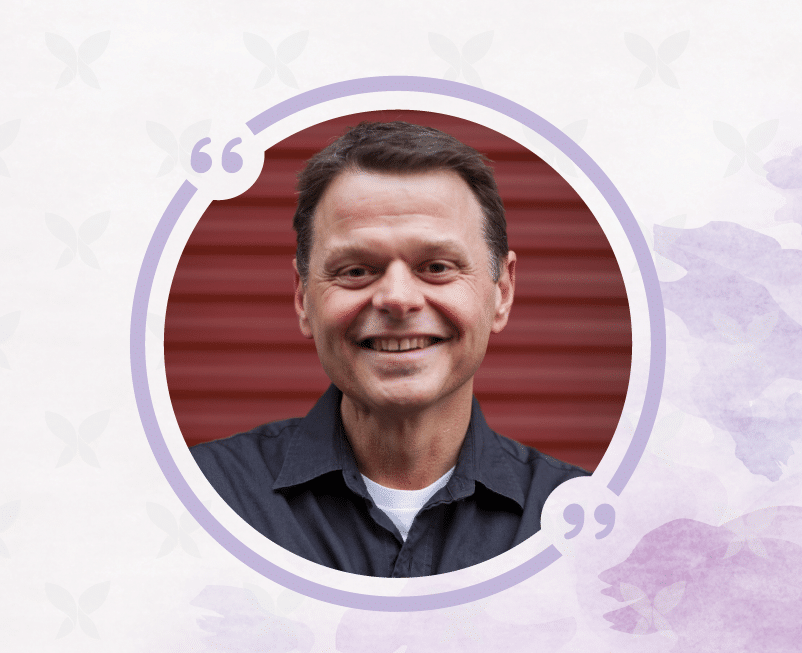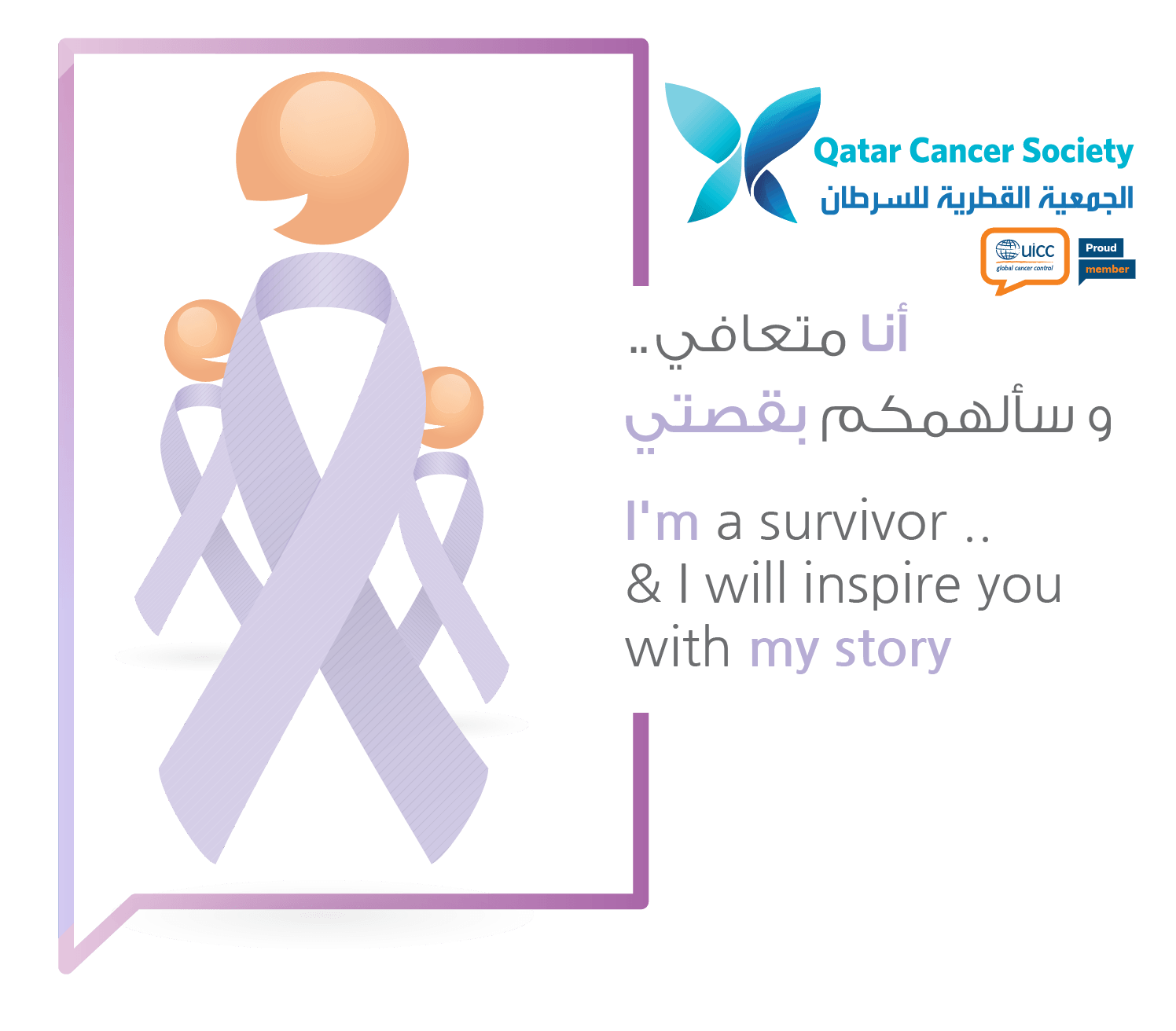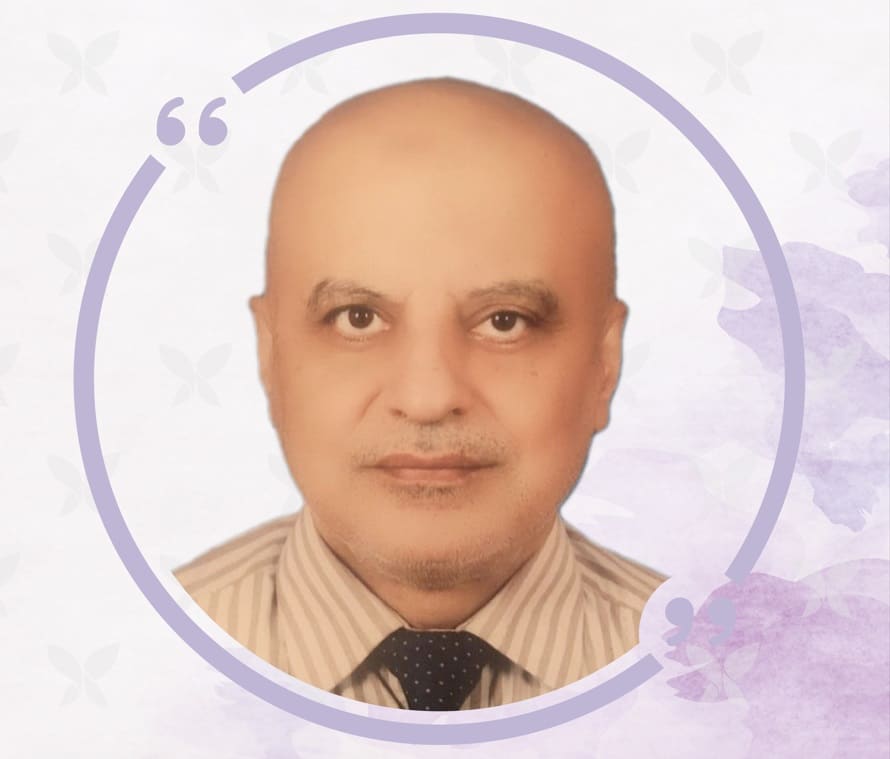My name is Alison Stone, and I have a PhD in Metaphysics, so I am often referred to as Dr. Alison Stone. I came to Qatar to open up a lady’s well-being center, and the reason that I took this journey of well-being and preventative medicine is that I was diagnosed with cervical cancer when I was 30. So, I attribute my success today to that incident many years ago. I have survived cancer for 27 years, and I think it is essential to see how things have changed in that period.
Here is a brief synopsis of my journey ;
I was married at 18 (in my generation, that was acceptable and normal), had two children, and when I was pregnant with my third child, I went for a routine check-up, and they discovered that I had lesions and they were cancerous. Now, one of the things that I was blessed with in the UK was that in the 80s and early 90s, Pap smears were becoming very accessible for women: they weren’t mandatory, and they weren’t encouraged, but they were accessible, so after the birth of my first daughter I had them done, so I continued getting Pap smears after the birth of my second daughter. Had I not been tested, I am convinced I would not be here today.
The cervical cancer that I had was very aggressive, and mine was mainly because I was pregnant at the time. The cancer had gone to my lymph nodes, so by the time I had delivered my child, I was in stage 4. I do feel very strongly about the need to be proactive with your health.
That experience forced me to look at my life and my control over it. The experience of the surgeries and the treatments that you go through has such a profound effect on you physically, but I think it is more the fear that has the most profound impact, and the fear I had 27 years ago was never addressed. So now, when I find out about societies like the Qatar Cancer Society in Qatar, I am so impressed and excited that women have this opportunity to be supported. Had we had something similar in my day, it might not have changed the outcome, but it would have changed the journey.
As a mother, back then, you would not know what cervical cancer was. And in my day, doctors did not understand that it was the human papillomavirus that caused cervical cancer. And so we suffered in silence. I remember on the fourth day after the surgery–about 14 hours of surgery–and I started to cry. I remember the nurse came in and said, “Stop crying. There are people worse off”. And I remember that I never spoke again. I never spoke about my pain, and I internalized it. So it was ‘keep a brave face, don’t speak about it, don’t talk about it,’ and when I look back now, I see how it took a good 10 or 15 years after that until cancer could be talked about openly. Now, having chemo and not having hair, we celebrate it; it’s ok, and I think that Social Media is a way for people to talk about their own experiences and raise awareness about cancer.
I chose to take control of my life, and I took a spiritual path – I was lost, and I was fearful, and I think that learning and things like meditation about your health give you back a sense of control. Because when you are diagnosed, and the doctor says, ‘You have cancer, it is in stage 4, this is serious’ – you hand everything over to them, and with it goes this feeling of hopelessness because now you are at the mercy of people telling you that ‘you have to have this surgery, you have to have this chemo, you have to have this radiotherapy,” but you don’t feel sick.
So, the growth of self-help groups has been positive since doctors are starting to understand that patients need to have some emotional care. As a patient, I am not just somebody who has had surgery and whose vital signs you will check – I have gone through something life-changing–a hysterectomy– and I might be facing the fact that I will never have children again, the fact that I might die and leave my children, the fact that my husband might never love me again, and I have scars everywhere – nobody addressed that. It was all ‘hush hush,’ don’t talk about it, or ‘You should be grateful you are alive.’ Now, I feel that people can talk about the cancer experience; they can address it.
I think that the difference in Qatar (I was here ten years ago) is that nobody said the word nobody said that word, and women, therefore, especially Middle Eastern women who tend to put their children first, their husbands first, their sons first, would never even acknowledge having cancer, or want to know, that was the issue. I addressed a group of ladies in a Middle Eastern country 12 years ago, and we tried to convince them to get breast checks and pap smear tests, but they wouldn’t do it because they didn’t want to know. After all, they have fear, or they feel that sickness is based on divine intervention – and either way, they think they should surrender to it, and they don’t want to know. But the generation of women now, we can do something about it, especially the survivors. You can survive cancer, but that is a message that is never given out – you always hear ‘cancer death’ ‘cancer death’ – what about instead ‘cancer journey,’ ‘survival,’ ‘change,’ ‘power,’ ‘change in life,’ ‘change in perspective,’ ‘transformation’? There are a lot more positive words that can go with cancer, not just doom and death.
Not talking about cancer can be devastating – probably the most powerful memory I have about my experience is that I remember after my initial diagnosis from my doctor going home to my husband and when I told him and the look of fear in his eyes and then he shut down. I remember that they said I could terminate my pregnancy and that I had every reason to because my pregnancy would escalate the cancer, and I remember thinking, ‘What do I do? This will be the last chance to have a child because they are going to give me a hysterectomy. What do I do? And I again.
I told nobody about the look on my husband’s face and his inability to even respond to me. And so I carried that burden, which I am sure wasn’t healthy. I couldn’t even have the conversation about terminating my child or not because I didn’t want to reach out to anyone, because I didn’t want to see the fear again in somebody else’s eyes. And in those days, when you said the word cancer, you were met with silence. So I didn’t tell even my mother or anybody until after my surgeries. And then, when I was in the hospital, people started to visit. And I put on a very brave face to begin to deal with the fear because the fear I saw in other people’s eyes put fear back in me. But at least by then, I had gone through the process. In a way, keeping silent saved me because I could pretend it wasn’t happening. After all, nobody was talking about it. I fit into that era’s psyche: “Don’t speak about it; it doesn’t exist; let’s pretend everything is ok; just move forward.” Then, at night time, in the shower, you cry your eyes out.
I didn’t tell anyone about my illness, and I was in the hospital for about six or seven weeks. When I came out of the hospital, I asked my Mum to take care of me, so of course I opened up to her. I never told my daughters until they were 18 years old. I didn’t want them to be afraid that I was going to die. I did not want to put that fear into them. And I, not them, was preventing me from telling them. I always used the excuse that they were not old enough, and I didn’t want them to fear, but at the same time, I did want them to be proactive about cancer screening, so it was one of those challenges that I told myself: ‘I have to tell them.’ Two of my children have been vaccinated against the Human Papilloma Virus and regularly go for Pap smears. What I realized was that if I had dared to address it earlier, it is not that they would have gone earlier for Pap smears, but we could have had the conversations we had when I did eventually tell them. But my daughters have taken the situation on board, and nobody is afraid. I think the blessing in waiting to talk to them is that it is 22 years later, and they have only known me as a very healthy person, and now they understand the need to be proactive. As for everybody else, they avoided me. I lost contact with quite a few people after my illness. And I think some girlfriends were fearful because I was so young and healthy. That was the main thing: I was not a sickly person. I was healthy and had brilliant births.
But what the experience of illness has done for me is pave the course of my life since that time. My choices in development, self-development, and professional development have their basis in understanding and going through my journey. My Ph.D. is in metaphysics, and I am very keen on learning about epigenetics, which is the complete understanding that your cells are a reflection of your environment and not only your DNA, and so that is why they change. The internalization of fear and not taking care of yourself affects your genes too, which is fearful but empowering as well – it is fear because you ask yourself, ‘Did I do this to myself?’ but it is an empowering idea as well because whatever has happened to me, I have the power to change that environment. So therefore, again, having that supportive, nurturing, caring environment versus having that fearful environment is essential, which includes everybody else’s fear. Fear is quite toxic, and that can affect you too. That could affect your genes.
When I went for my surgeries, I was courageous. I took a breath and went in there feeling strong and brave. So I think the whole spiritual aspect to illness is faith, how strong faith is, what color it is and what it looks like to you, and how you can turn that into a physical element that walks you through that journey.
My illness made me a much better person, and it gave me a purpose in life – when I look at all the things that I had been planning before my illness and what my life has been like over the years, everything was about learning about care and preventative medicine. I have a bachelor’s degree in alternative medicine. A housewife with three kids – who would have thought it? I studied Ayurveda in India. Who would have thought that a homemaker would have done that? And I met the most incredible people who came my way. And I can look back and see that every single thing that I did without a plan, in reality, led me to get a Ph.D., to be in Qatar to build the women’s wellness center, to be connected, and to finally, after 27 years being able to tell my story someday.
Even in my 5th year being cancer-free, I was sweating and panicking – what if it has come back? This is interesting because you would not do that with any other disease. All of our terminology characterizes this disease as a beast, and once it has you in its grip, it is going to seize you, but if we could change the dialogue to an attitude of ‘let’s see how healthy you are’ or ‘your blood cells are fantastic today.’ Suppose we switched our approach to cancer and reframed everything, for example. In that case, we might say things like, ‘Let’s see if we can add you to our three-year list of cancer-free living,’ that would be a very different conversation about the disease rather than saying, ‘Let’s see if it’s come back’ or ‘let’s see if you are still in remission.’
I think that the medical profession could reframe the way it talks about cancer with patients. For example, changing phrases like ‘I am so sorry, but I think we need to see you…” or ‘we will only call you if there is something wrong’ – in simple terms, what the patient hears is, ‘we will only call you if you have cancer’ and you get a miscall, and you get upset, and you are waiting and waiting anxiously. Make the experience of going in for a check-up more positive, so I will want to return. Instead of telling patients, ‘You only have two months to live,’ why not tell them that the medical system will do the best it can, send them home, and ask them to focus on the quality of their life and their diet?










